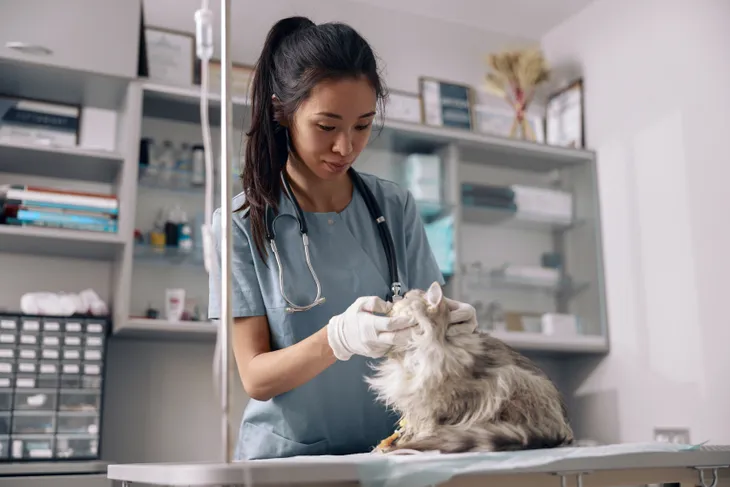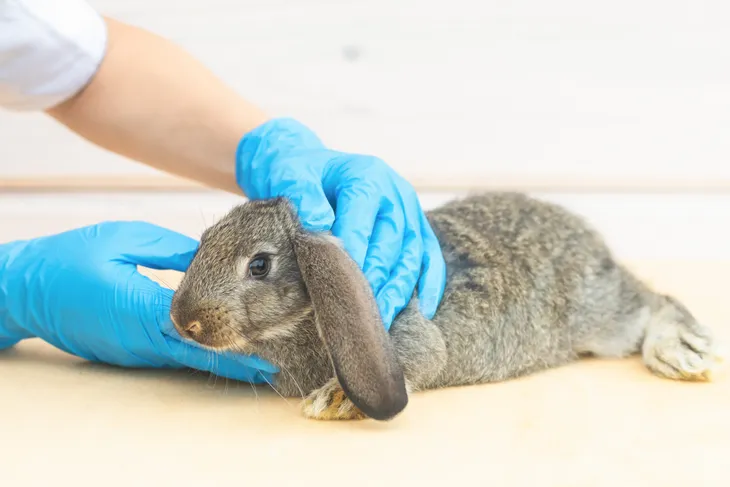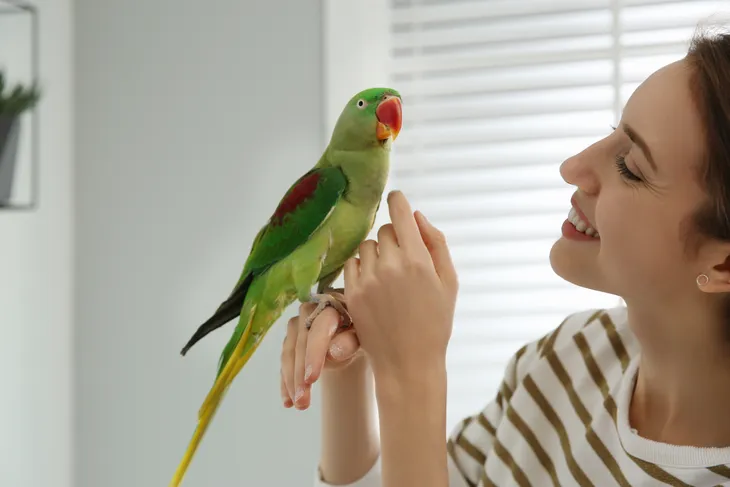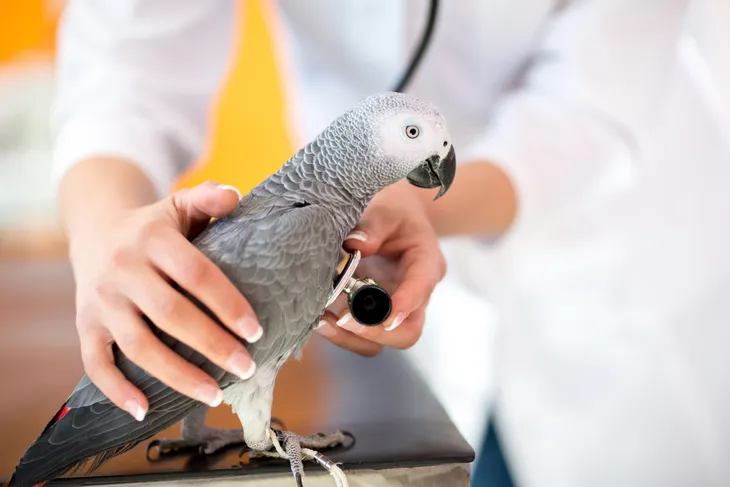- Just like us, our pets can have allergies and their allergic responses are just as itchy and irritating.
- The most common pet allergies are skin, food, and environmental allergies.
- To get a proper diagnosis, take your pet to a veterinarian. Treatment will depend on the cause, but often involves lifestyle changes and sometimes medication.
Congestion, red eyes, and a scratchy throat…for people who have allergies these symptoms are all too familiar. Most of us either have our own allergies or know someone who does, but did you know that our pets can also suffer from allergies? According to VCA Canada an allergy is “a state of over-reactivity or hypersensitivity of the immune system to a particular substance called an allergen.” Most of these are from plants, insects, animals, or foods.
The misguided reaction of foreign substances by our immune system is what causes the uncomfortable symptoms associated with allergies. Just like us, our pets can experience different types of allergies. The most common are skin allergies, food allergies, and environmental allergies — all of which pose challenges for pets and their owners. Keep reading to learn more about all the symptoms of pet allergies, including the common causes and potential treatments options…
Dogs: Types of Allergies
The most common types of allergies that a dog will have are flea allergies, seasonal or environmental allergies, and/or food allergies. PetMD says a flea allergy is the most common skin disease in dogs. Even just one bite from one or two fleas per week will cause dogs to itch. The allergen causing this itchiness is believed to be flea saliva.
Another common allergy in dogs is seasonal and environmental allergies. These are often caused by substances in your home, backyard, or anywhere else a dog might spend time. They can be inhaled (i.e. pollen) or absorbed through the skin when your dog touches them. According to PetMD, the most common triggers are pollens, plants, animal fibers, dust mites, and mold spores.
Lastly, dogs can develop a food allergy at any point during their life, regardless of whether they’ve had that food in the past or not. “The most common food allergy for dogs is to a protein source in the diet, but sometimes the allergy is to grains and/or other ingredients,” writes the source.
Dogs: Symptoms of Allergies
The symptoms dogs experience from allergies will depend on the cause, the type of allergy, and how severe their allergies are. The American Kennel Club lists the following as the most common signs of an allergic reaction…
- Itchiness
- Hives
- Swelling of the face, ears, lips, eyelids, or earflaps
- Red, inflamed skin
- Diarrhea
- Vomiting
- Sneezing
- Itchy ears
- Chronic ear infections
- Itchy, runny eyes
- Constant licking
While these are the most common symptoms of allergies in dogs, American Kennel Club points out that they could be from another health condition. Make an appointment with your veterinarian to get an accurate diagnosis and proper treatment.
It’s also important to note that just like humans, dogs can have severe reactions and go into anaphylactic shock. This acute allergic reaction can be fatal. A dog going into anaphylactic shock will have a drop in blood pressure, then go into shock. This is much different than what they might experience from a skin allergy. Always keep a close eye on your dog after bee stings, new vaccines, drugs, or foods. Thankfully, the source also notes that these reactions are rare in dogs.
Dogs: Diagnosing and Treating Allergies
Diagnosing allergies can be a complicated process. The first thing that a veterinarian will likely want to do is rule out any other possible health conditions that could be causing their symptoms. If allergies is suspected, they’ll likely suggest an allergy test to determine what the allergen is that is causing the reaction, explains the American Kennel Club. Although, the same source notes that allergy tests are not always definitive.
Treatment will depend on what the allergy is, in most cases the best form of treatment is to avoid the allergen as much as possible. The example the American Kennel Club provides is that if the dog has flea allergy dermatitis, the treatment will be to rid the dog of any fleas and put them on a flea and tick control product. If they have a food allergy or intolerance, you’ll want to change their diet. In addition to lifestyle changes, a veterinarian might be able to prescribe allergy relief medication to help control any reactions.
Cats: Symptoms of Allergies
The symptoms of allergies in cats is quite similar to those in dogs. It happens when their body becomes sensitive to substances in their environment, explains WebMD for Pets. “As your cat tries to process and get rid of these irritating substances, they may show a variety of symptoms,” writes the source.
WebMD for Pets lists the following as the most common symptoms of allergies in cats:
- Sneezing, coughing, and wheezing
- Itchy, running eyes
- Ear infections
- Vomiting or diarrhea
- Snoring
- Swollen, sensitive paws
- Excessive licking (grooming)
- Red or dry skin
- Scratching
Cats: Types and Causes of Allergies
There are four types and causes of cat allergies: environmental, fleas, food, and seasonal. Environmental allergies include substances like pollen, grass, fungi, mold, and dust, says WebMD for Pets. Cats can also have allergies to man-made substances like cigarette smoke, perfume, and some cleaning products.
Flea allergies occur from a small insect known as a flea. Your cat will experience an allergic reaction when the flea bites. Similar to dogs, it is the fleas saliva that is thought to cause irritation. It can affect their whole body and not just the area that was bitten. WebMD also advises consulting with a veterinarian to find the right flea protection product.
Another allergy is food. Some cats will be allergic to specific foods that cause them to have itchiness, vomiting, or diarrhea. Talk to your veterinarian to determine what foods are causing this reaction and how to make the necessary dietary changes.
Lastly, atopic dermatitis is when a cat experiences allergies, “their bodies can often react with a skin condition called atopic dermatitis,” writes the source. “With this condition, your cat may develop skin sores, scabbing, hair loss, and redness.”
Cats: Diagnosing Allergies
To get a proper diagnosis, your cat will need to go see a veterinarian. “Cat allergy testing is done with either a blood test or skin test,” writes WebMD for Pets. “For a blood test, the vet will take a sample of the cat’s blood and sent it to a lab for evaluation.” Skin tests involve small injections just under their skin.
If they are allergic to a specific substance, a hive will appear on their body. Neither one of these tests is better than the other. Sometimes both will be used to get a better understanding of their allergies. Either way, a specific diagnosis will lead to proper treatment.
Cats: Treating Allergies
Similar to most other scenarios involving allergies, the best way to stop an allergic reaction is to prevent allergens from entering their environment in the first place. WebMD for Pets suggests using a vet-approved flea and tick control product, dust-free cat litter, frequent bathing, keep your home clean of dirt and dust, wash their bedding, provide a healthy diet, and avoid smoking around your pets.
If necessary, there are some medications that can be used to treat cat allergies. The most common are cortisone pills which help with itching, lotions, ointments, ear or eye drops. There are also antihistamines and some flea prevention products. Be sure to talk to your veterinarian before giving your cat any new medication.
Rabbits: Symptoms of Allergies
There’s nothing worse than seeing our pets in pain or discomfort, especially a cute and cuddly rabbit! According to Bayswater Vets, rabbits can have allergies. Most of the time it will look like they have hay fever, but rest assured, it’s most likely not that. Signs that your rabbit has allergies include red eyes, a clear discharge from their nose, excessive touching to their nose and face with their paws, or rubbing its face on the ground repeatedly.
The source also notes that any long term exposure to allergens could result in rhinitis and bronchitis. It also warns that rabbits are prone to respiratory infections, so it is important owners take action to find out what is causing their irritation and remove it from their environment.
Rabbits: Common Causes and Treatment Options
According to Bayswater Vets, the most common causes behind rabbit allergies are carpet cleaning products, fabric and air fresheners, any strong scents (if it smells strong to you, it’s likely far too strong for them), fireplace fumes (ensure proper ventilation so carbon dioxide fumes are dispersed), dust, cigarette smoke, as well as mites and fleas which can be treated with cortisol.
The best way to treat allergies in rabbits are simple lifestyle changes or preventative measures. The most surefire way to stop an allergy and prevent further harm is to remove any suspected irritants from your rabbits cage or your home. If it’s an environmental allergen, try using a fan to help circulate fresh outside air into their space. As always, Bayswater Vets also suggests bringing the pet into a veterinarian clinic for a proper diagnosis which may include a simple blood test.
Birds: Symptoms and Causes of Allergies
Does your feathered friend sneeze or wheeze? Dakota Hills Veterinary Clinic says it could be due to allergies. In some cases they might even develop a skin rash. This particular symptom seems to be more common in parrots than any other bird.
The same source notes that allergic reactions in birds are still being studied so there aren’t any definitive tests in place. However, there have been many instances of bird owners reporting reactions to certain foods and substances like sulfur, peanuts, wheat, or spirulina.
Other irritants could be pollens from nearby trees and plants. “Some theories hold that birds from tropical climates, such as Central or South America, may be allergic to birds with powdery downy feathers, such as birds from Asia or Australia,” explains Dakota Hills Veterinary Clinic. Similar to all the other pets on this list, birds can also have food allergies.
Birds: Treatment Options for Allergies
In order to minimize symptoms and prevent future reactions, the source suggests keeping their environment as clean and allergen-free as possible. You should frequently change the air filter in your home to diminish dust, mold, and pollen in the air.
In some cases, antihistamines can help, but don’t ever give these without consulting a veterinarian first. Keep them on a healthy diet and make sure they get lots of vitamin A and beta-carotene, says the source.
Hamsters: Potential Allergies and Treatment Options
Do you notice your hamster sneezing a lot? It might be due to allergies. While there isn’t really any allergy testing for hamsters, the Spruce Pets says “we can treat the symptoms, suppress histamine release (with the use of antihistamines), and eliminate possible sources of allergens.” Hamsters can be allergic to certain scents in the fabric softeners their owners use to wash their fleece blankets or towels, as well as any bedding in their cage or something in their food and treats. It could also be a result of any microscopic dust mites in their environment.
To treat their allergies, try switching their food, washing their bedding in an unscented detergent, and use a HEPA filter near their cage to eliminate allergens in their environment. Any of these small changes could have a big impact on helping to reduce their symptoms, particularly any sneezing. If symptoms are worse during drier times of the year, the source also notes that a humidifier might help. If none of this works, ask your veterinarian for an antihistamine.
Horses: Food Allergies
Food allergies in horses are rare, says Merck Veterinary Manual, but there have been reports that certain types of grains or hay can cause hives in horses. Sometimes food allergies in horses were associated with high-protein food concentrates. To determine whether or not a horse is suffering from a food allergy, Merck Veterinary Manual suggests starting with a trial or elimination diet.
For pasture fed horses, this might entail changing their pasture or isolation from that pasture. Horses on a specific diet with supplements, it would mean eating a new diet without any of the previously fed foods. If allergy symptoms resolve, then it’s likely a food allergy.
To confirm it is indeed a food allergy, add foods back in one at a time. “If signs return in response to a particular food given, then that food is likely the cause,” writes the source. “The suspect food is again eliminated from the diet.” A food allergy will be confirmed if the symptoms resolve within 14 days. Treatment for a food allergy is simple – remove it from their diet. Merck Veterinary Manual warns that other diseases may complicate the identification of a food allergy and in rare cases, new allergens will appear with age.
Horses: Airborne Allergies
Unfortunately for this one, horses often live in areas where there is high levels of dust, mold, or pollen. While their immune system typically provides protection against these irritants, says Merck Veterinary Manual, some horses have an immune system that will overreact to the presence of one or more airborne allergens. This type of allergen typically affects the skin. “The most common skin problems associated with the inhalation of allergens include hives and rashes,” writes the source. Itching is another common sign of an airborne allergy, often from things like hay dust, mold, mildew, pollen, and dust mites.
According to Merck Veterinary Manual, once an allergy is diagnosed, their treatment involves avoiding that allergen (if possible). For example, if a horse is allergic to dust in a particular environment, they might consider keeping it outside rather than in a stable. On the flip side, if a horse has a seasonal allergy, they might consider keeping it indoors during months when the presence of pollen is high. They can also use corticosteroids to control any inflammatory reaction.

















